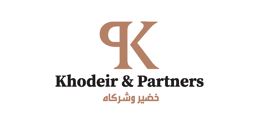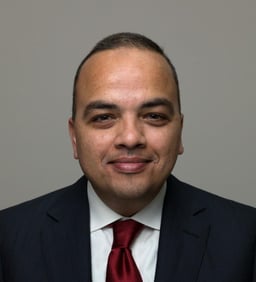Mohamed Khodeir, Founder & Managing Partner
What do you see as the main points that differentiate Khodeir & Partners “KP” from your competitors?
The main points of difference are that our firm had to inaugurate its practice during very challenging times, as immediately after our establishment in November 2019, the world was hit by COVID, followed by the Ukrainian Russian war a few years later. All these factors have caused us to encounter very challenging scenarios at the outset of our establishment.
We have seen these challenges as opportunities to focus on a very qualitative approach in terms of offering legal services and invoking up-to-date technology to be able to address the new challenges of the market. Our focus on quality has led the firm to have a recognized footprint in a very short interval while we continue to grow in Egypt and the region.
Growth in the region was supported by technological capabilities and the ability to stay close to our clients wherever they are in the region. Such initiatives and strategies have opened up new parameters for growth that we will continue to see in the next few years.
Which practices do you see growing in the next 12 months? What are the drivers behind that?
I believe that economic pressure will lead to continued growth in sectors related to dispute settlement, including both Litigation and Arbitration. I think the world is encountering several uncertainties which will lead to more opportunities in the area of dispute settlement. At the same time, we can expect strategic growth in regulatory work and new practice areas such as data protection and technology related to legal services.
What's the main change you've made in the firm that will benefit clients?
One of the main changes that we are undergoing in the firm is to head more towards a flat structure rather than strict hierarchy. This enables us to work more efficiently and adopt a more conducive approach that allows us to brainstorm and interact more closely with client files, all of which are components of service quality that are prime for our clients.
Without implementing quality improvement strategies, firms will encounter major difficulties in the near future with the growth of technology in the legal services industry. Therefore, we continue to focus on quality by adopting the necessary structural changes as well as policies that promote a quality focused approach to almost all matters that we handle for our clients. This is not an easy trigger button type of solution; it’s a continuous practice that evolves day by day and involves many processes to enhance quality components for our clients, with no definitive endpoint. It is an ongoing process that will continue to evolve and what we improve today will need ongoing work to maintain and further improve tomorrow. That’s the essence of improvement and reform in all areas.
Is technology changing the way you interact with your clients, and the services you can provide them?
Technology is shaping the service industry in all sectors, including legal services, as it paves the way for a revolutionary structure for offering legal services with the rapid development of AI. Law firms need to make significant investments in technology that go far beyond what has already been invested.
At KP, we are adopting an extra eventual environment in terms of AI use and development to ensure that we do not miss out opportunities and do not fall into the trap of undue reliance on AI that might hamper client interests. Therefore, we are scrutinizing the evolution and development of AI to use it quite strictly to ensure a balance between the risk of overusing AI or on the other side missing out on such development.
Can you give us a practical example of how you have helped a client to add value to their business?
There are several examples of how we have helped our clients add value to their business, including negotiating major transactions that reshaped their business operations by expansion or restructuring. Also, we have supported some of our clients in addressing major shareholder disputes that were threatening the continuity of their businesses. As a result of successfully resolving these disputes, our clients have gained opportunities to survive and grow.
In addition, we have helped several clients design structuring plans for their businesses, both locally and regionally, that have supported their businesses by operating cross-border activities and expanding in the region.
Are clients looking for stability and strategic direction from their law firms - where do you see the firm in three years’ time?
Clients have always been looking for strategic direction and support from law firms. The relationship between clients and lawyers is not restricted to only providing legal services; it evolves into a strategic partnership that encompasses offering legal services as conciliary to business in many aspects. There are several instances where our clients simply pick up the phone to brainstorm with us on a new line of business or a new business opportunity. Such discussions could evolve around many assets and aspects that have a strategic impact on the business, not only limited to the legal parameters.
For example: One of our clients was expanding in Africa and wanted to assess this opportunity in terms of growth potential, expected returns, as well as the risks involved. We supported the client from a legal and SWOT analysis in this process.
Another example: A major government project on which we advised our client regarding the benchmarking of the regulatory environment and legal contexts in which the project could be implemented. Our advice was not limited to legal considerations but also included strategic dimensions as well.

